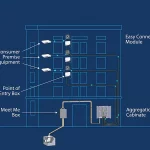Sponsored Links
UPDATE UK Digital Britain - Universal 2Mbps Rural Broadband Solutions
Posted: 16th Jun, 2009 By: MarkJ
Despite some contrary predictions - today's Digital Britain report has seen the government giving its official approval to a new Universal Service Commitment (USC), which aims to make broadband speeds of 2Mbps available to everybody in the UK by 2012. This will be delivered through "upgrades to the existing copper and wireless networks."
Sadly there's precious little meat in terms of precisely how the government plans to do this, other than reiterating the somewhat vague line of our initial paragraph above; though the new tax on telephones lines (original news) to help fund next generation broadband for more remote locations will also play a part.
The report also sets out to push for a rapid transition to next generation high-speed Mobile Broadband (3G) services, which includes helping to foster progress towards universal coverage of related services without sacrificing market competition.
However part of this process will include 2G liberalisation; making older spectrum available to newer 3G services. This will require a further process of Guiding Technical Arbitration because some of the operators have not yet reached a firm agreement on the matter.. oops.
The Government has also proposed to make the existing operators’ 3G licences indefinite rather than term licences in order to provide certainty for investment and an incentive towards a universal roll-out. Before 2012/13 this is estimated to provide in-building speeds of perhaps 1Mbps and could be boosted by an external aerial to make a contribution towards the wider USC.
Frustratingly the report concentrates far too much on download speed and doesn’t even mention the importance of upstream performance or latency. The affordability and flexibility angles are indirectly hinted at but, in terms of making sure that the USC technologies are affordable for those on lower incomes, there is nothing concrete.
There is precious little point in a 2Mbps USO if the services are too expensive or unable to cope with modern day and growing levels of rich content usage, such as from video sites, multiplayer gaming and Internet voice (VoIP) calls.
UPDATE - 17th June 2009 - 2pm:
Some additions to the details.
Sadly there's precious little meat in terms of precisely how the government plans to do this, other than reiterating the somewhat vague line of our initial paragraph above; though the new tax on telephones lines (original news) to help fund next generation broadband for more remote locations will also play a part.
The Report States:
The Universal Service Commitment will be delivered by a mix of technologies: DSL , Fibre to the Street Cabinet [ FTTC ], wireless [ Mobile Broadband , Wi-Fi ] and possibly Satellite infill. It will be funded from £200m from direct public funding and enhanced by five other sources:
- commercial gain through tender contract and design,
- contributions in kind from private partners,
- contributions from other public sector organisations in the nations and regions who benefit from the increased connectivity,
- the consumer directly for in-home upgrading,
- and the value of wider coverage obligations on mobile operators arising from the wider mobile spectrum package.
The Commitment will be delivered through the Network Design and Procurement Group, with a CEO appointed in the Autumn.
The Universal Service Commitment will be delivered by a mix of technologies: DSL , Fibre to the Street Cabinet [ FTTC ], wireless [ Mobile Broadband , Wi-Fi ] and possibly Satellite infill. It will be funded from £200m from direct public funding and enhanced by five other sources:
- commercial gain through tender contract and design,
- contributions in kind from private partners,
- contributions from other public sector organisations in the nations and regions who benefit from the increased connectivity,
- the consumer directly for in-home upgrading,
- and the value of wider coverage obligations on mobile operators arising from the wider mobile spectrum package.
The Commitment will be delivered through the Network Design and Procurement Group, with a CEO appointed in the Autumn.
The report also sets out to push for a rapid transition to next generation high-speed Mobile Broadband (3G) services, which includes helping to foster progress towards universal coverage of related services without sacrificing market competition.
However part of this process will include 2G liberalisation; making older spectrum available to newer 3G services. This will require a further process of Guiding Technical Arbitration because some of the operators have not yet reached a firm agreement on the matter.. oops.
The report notes: "The aim of these proposals is to ensure that each of the five existing operators and potential new entrants can bid with a realistic opportunity of acquiring sufficient spectrum to build out a next generation mobile network capable of broadband speeds of 50Mbps in the main urban and suburban markets going down to perhaps 4-5Mbps in the more rural areas."
The Government has also proposed to make the existing operators’ 3G licences indefinite rather than term licences in order to provide certainty for investment and an incentive towards a universal roll-out. Before 2012/13 this is estimated to provide in-building speeds of perhaps 1Mbps and could be boosted by an external aerial to make a contribution towards the wider USC.
Frustratingly the report concentrates far too much on download speed and doesn’t even mention the importance of upstream performance or latency. The affordability and flexibility angles are indirectly hinted at but, in terms of making sure that the USC technologies are affordable for those on lower incomes, there is nothing concrete.
There is precious little point in a 2Mbps USO if the services are too expensive or unable to cope with modern day and growing levels of rich content usage, such as from video sites, multiplayer gaming and Internet voice (VoIP) calls.
UPDATE - 17th June 2009 - 2pm:
Some additions to the details.
Search ISP News
Search ISP Listings
Search ISP Reviews
Latest UK ISP News
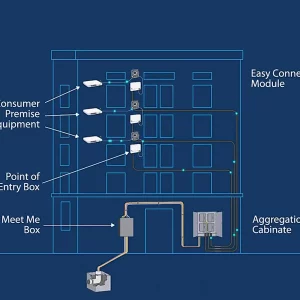



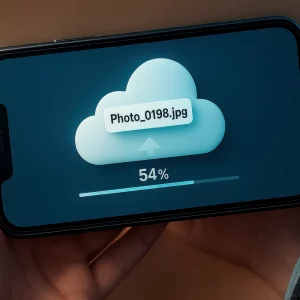
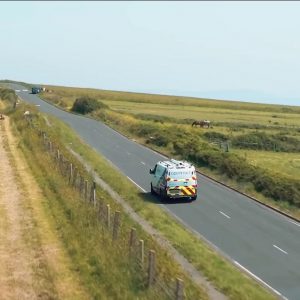
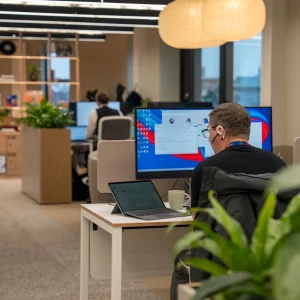
Cheap BIG ISPs for 100Mbps+
150,000+ Customers | View More ISPs
Cheapest ISPs for 100Mbps+
Modest Availability | View More ISPs
Latest UK ISP News
Helpful ISP Guides and Tips
Sponsored Links
The Top 15 Category Tags
- FTTP (6837)
- BT (3897)
- Politics (3087)
- Business (2782)
- Openreach (2674)
- Building Digital UK (2520)
- Mobile Broadband (2491)
- FTTC (2145)
- Statistics (2141)
- 4G (2107)
- Virgin Media (2038)
- Ofcom Regulation (1785)
- 5G (1749)
- Fibre Optic (1607)
- Wireless Internet (1601)
Sponsored
Copyright © 1999 to Present - ISPreview.co.uk - All Rights Reserved - Terms , Privacy and Cookie Policy , Links , Website Rules








